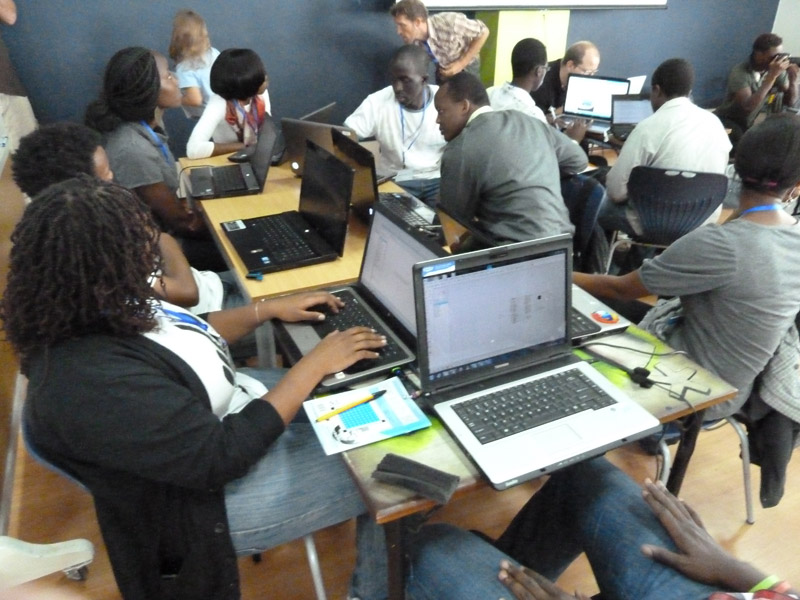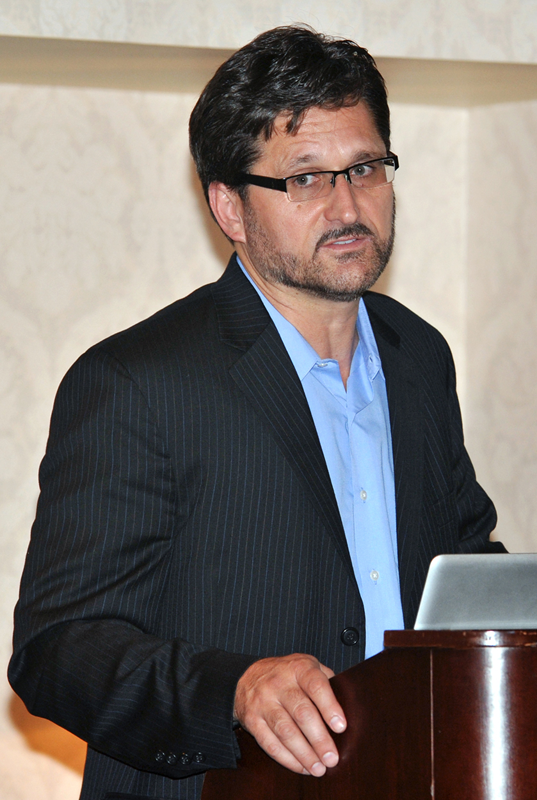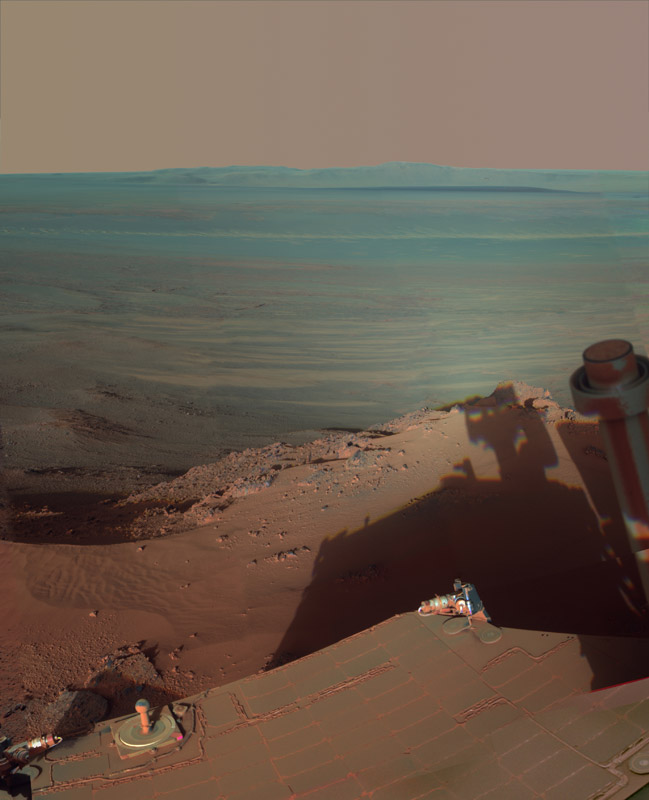
This is a composite of a series of images photographed from a mounted camera on the Earth-orbiting International Space Station, from approximately 240 miles above Earth. Space station hardware in the foreground includes the Mini-Research Module (MRM1, center) and a Russian Progress vehicle docked to the Pirs Docking Compartment (right). Photo Credit: NASA
May 30, 2012 Vol. 5, Issue 5
Representatives from across the federal government gathered at NASA Headquarters to share insights about the challenges of managing organizational knowledge.

This is a composite of a series of images photographed from a mounted camera on the Earth-orbiting International Space Station, from approximately 240 miles above Earth. Space station hardware in the foreground includes the Mini-Research Module (MRM1, center) and a Russian Progress vehicle docked to the Pirs Docking Compartment (right).
Photo Credit: NASA
On May 16, 2012, NASA Chief Knowledge Officer Dr. Ed Hoffman hosted knowledge experts from government organizations in law enforcement, intelligence, defense, transportation, health, aviation, and aerospace at the spring meeting of the Federal Knowledge Management Working Group. The group shared organizational knowledge management practices and discussed ways to leverage each other’s activities and lessons.
“We have the responsibility to the people executing our programs and projects today to make sure they have the knowledge they need to be successful,” said Mike Ryschkewitsch, NASA Chief Engineer, noting that the expertise and know-how of generations past and present must remain accessible, shareable, and transferrable. “There will be a time when we look at a CD or a DVD as our archive and we find that it is not readable,” said Ryschkewitsch.
“Customers expect knowledge and collaboration anytime and anywhere it is easy to use,” said Michael Seelman, Deputy Chief Knowledge Officer for the Federal Bureau of Investigation. With the rise of mobile devices and cloud storage, security of and access to knowledge is increasingly critical to the maintenance of organizational knowledge. In light of budget pressures, federal agencies are expected to do more with less. Cross-agency cooperation and collaboration will play an increasingly critical role in meeting the federal government’s knowledge management challenges.









